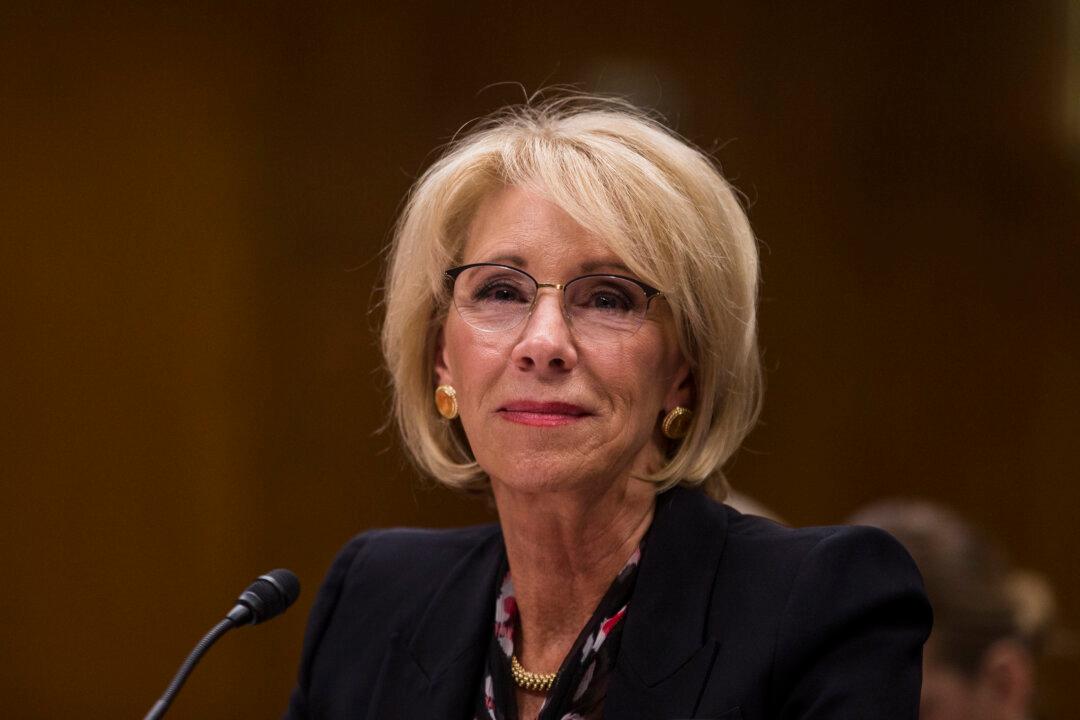Education Secretary Betsy DeVos unveiled her vision for the future of federal government’s student lending programs, proposing to make the Federal Student Aid (FSA) office into a bank-like agency independent of her department.
Overseeing more than $1.5 trillion in outstanding loans to 42 million borrowers, the FSA has become the nation’s top consumer lender, according to DeVos in a Tuesday speech at the Federal Student Aid Training Conference in Reno, Nevada. She argued that the Education Department should get out of the banking business.





